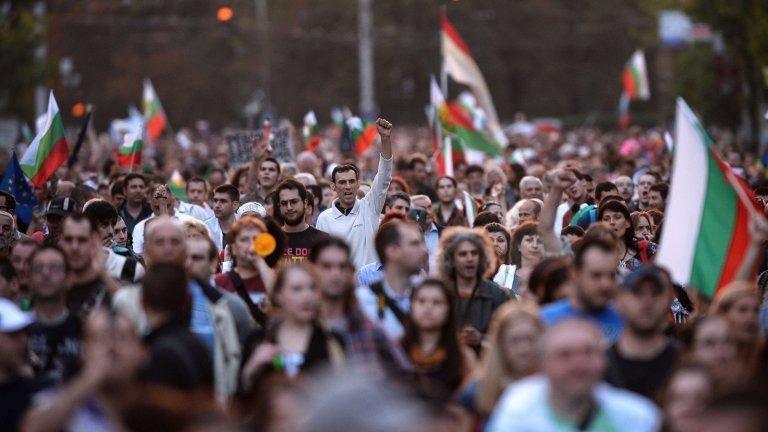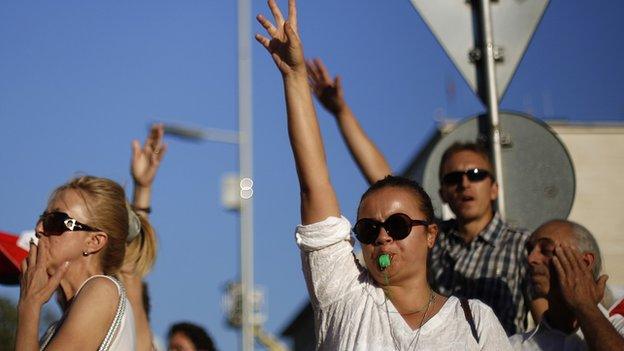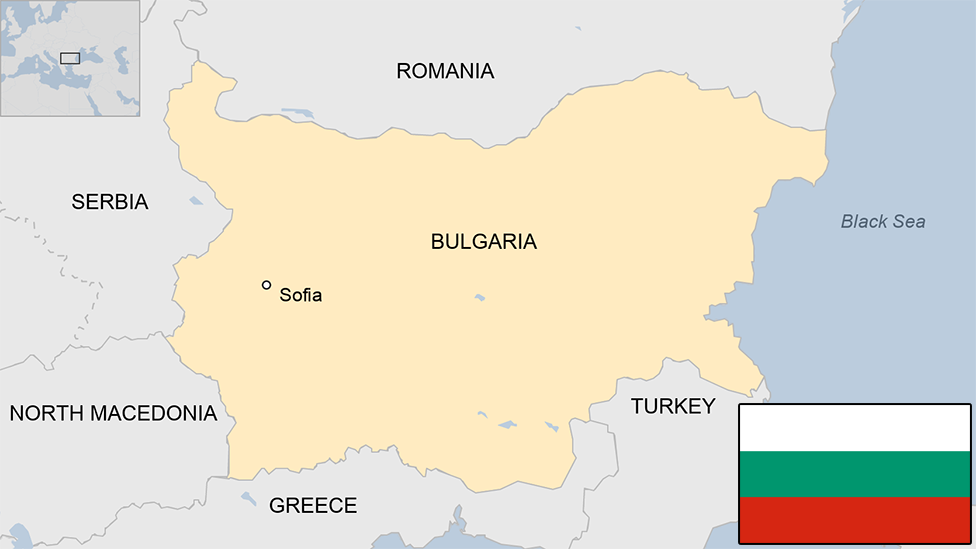EU Commissioner Viviane Reding backs Bulgarian protests
- Published

Ms Reding's dialogue with Bulgarians was broadcast live on the web
The EU's Justice Commissioner Viviane Reding has backed Bulgarian protesters who have been staging mass rallies daily against government corruption.
"Here in Sofia today, my sympathy is with the Bulgarian citizens who are protesting against corruption," she said in a tweet.
Ms Reding held a big question-and-answer session with Bulgarian people on Tuesday, broadcast live online.
For five weeks Bulgaria has seen big anti-government street protests.
Many participants in Tuesday's forum, called "Citizens' Dialogue in Sofia, external", expressed anger at their government, complained of economic hardship and corruption and urged Ms Reding to help reform their country, the poorest EU member state.
Public outrage last month pushed the government to revoke its appointment of a controversial media mogul, Delyan Peevski, as head of the national security agency.
That government U-turn "shows the voice of the citizens is heard - we were very relieved that your voice was heard", Ms Reding said.
"We can't replace your government, but we have a responsibility to see that things are going well," Ms Reding told the forum. She said she would raise their concerns with the EU Commissioner for Regional Policy, Johannes Hahn, who oversees EU spending in Europe's poorest regions.
She said that if EU regional aid was indeed misspent in Bulgaria, as some participants alleged, "then the oversight done by your government is not perfect - it means the Commission has to come and see what's happening with the funds".
Pressure for reforms
Bulgaria, like some of its ex-communist neighbours in Eastern Europe, relies on EU funding to help its weak economy. Yet the Commission has put it and Romania under special monitoring because of concerns about government accounting standards, organised crime and judicial corruption.
Hungary's government has also been criticised by the Commission and Euro MPs for alleged encroachments on EU-wide human rights norms.
"Why did I intervene in Romania and Hungary? Because in those countries there was complete destabilisation of the judiciary, elimination of the supreme court," Ms Reding said, adding that Commission pressure had got those judicial infringements corrected.
The Commission is holding 25 public discussions with citizens in 14 EU countries and says the feedback will help guide its plans for EU reform.
Looking ahead to the EU's future and next year's European elections, Ms Reding urged young people to vote and said "I want the EU to become some kind of United States of Europe - we need that if we want to be strong".
"I want a political union, over and above an economic union... we need strong institutions, a strong European government - the commission - and a strong European Parliament, maybe a second chamber for the government, like a senate... that's something to discuss in the European election campaign."
She also backed calls for the European Commission president to be directly elected, but said that would require EU treaty change.
A new Commission will be appointed late next year, after the European elections. The current president, Jose Manuel Barroso, is serving his second term and has not ruled out standing again. The number of terms is not limited to two.
- Published17 July 2013

- Published5 July 2013

- Published20 January
